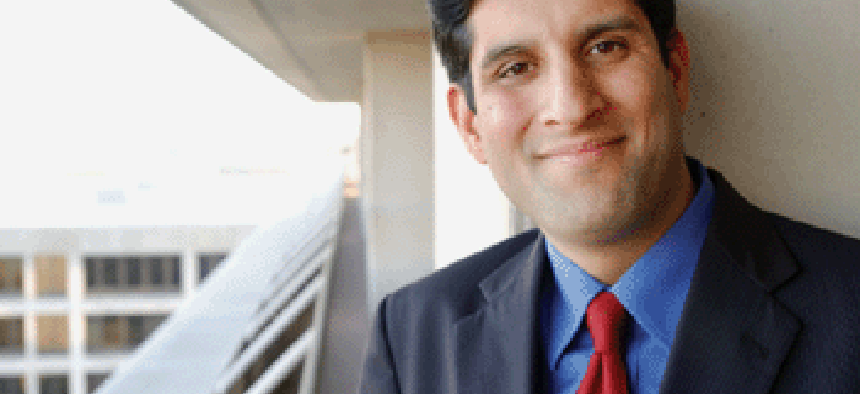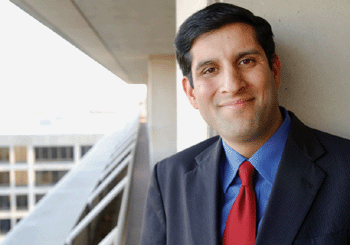Venture capital approach pays off

Last Byte: A conversation with Vivek Kundra, Washington's new chief technology officer.

Vivek Kundra is Washington's new chief technology officer.
Convincing city leaders that local government should be on the
cutting edge of technology is often a tough sell. For Vivek Kundra,
Washington's new chief technology officer, the remedy is
simple: Start small. Investment risks are minimized when projects
start as models. If it works, a program can grow, he said. If it
doesn't perform, the loss isn't significant.
Kundra recently spoke with Washington Technology Staff Writer
Doug Beizer about technology and its role in a major U.S. city.
Q: What does being CTO of Washington, D.C., mean to you?
Kundra: The role of CTO is to make sure there is a sound
platform for government operations, whether that is the police
department, the school system, libraries, health department. [The
challenge is:] How do you make sure you have a secure computing
platform that functions almost like a utility?
The second level is to find the innovative path. Technology...is
supposed to be a force multiplier. It's supposed to be able
to streamline processes, provide you with intelligence that you
didn't have before. That is one of the most important
functions of a CTO, and I take that part very seriously. I'm
trying to find a way we can run government operations cheaper,
faster and more efficiently.
Q: What is the state of technology in the nation's
capital?
Kundra: The big investment we need to make is on the innovation
side. The Internet was spun out in 1995 by the National Science
Foundation.
Now we've moved into the world of Web 2.0 with blogs and
wikis. So where we stand today in D.C. is we've made capital
investments when it comes to infrastructure ? like our
network and data center ? but the greatest opportunity for us
is to ask some really simple questions in terms of looking at
business processes.
Q: Do you have an example?
Kundra: We bought 2,600 Panasonic Toughbooks and installed
[them] in police cruisers with Global Positioning System
[technology]. Now we are tying those systems to our geographic
information system so you can see in real time where a police
cruiser is in correlation to a 911 call. It lets us make more
intelligent decisions and also figure out ways to police more
intelligently.
Q: Is it difficult to get city leaders to fund the work you want
to do?
Kundra: I take a different approach than other chief information
officers and CTOs may take. I believe the best way to solve a
problem is to scale a model. I've created a lab where we very
much mirror what Google does. We do very small-scale
implementations of certain technologies. For example, we're
using wikis now.
We take a technology, apply it to a business problem, and then
we scale it citywide based on how well it works. It's very
much based on a venture capital model. Some of these ideas will
fail. But the beauty of it is you've made a modest
investment, and if it scales, you'll create enough value that
the funding will come because the agencies want to pay for it.
Q: How important is it to move from older systems to commercial
and Web-based systems?
Kundra: Too often governments build when they can buy, or own
when they can lease. The reason why this is [risky] in high tech
is...Moore's Law, the processor speed exponentially doubling
every 18 months. The second you buy technology, it is a
depreciating asset. Because of that, we are moving towards
service-oriented architecture and outsourcing functions that we
don't need to be doing.
Q: What can you outsource?
Kundra: A perfect example is we have a pilot with 700 people on
Google Apps. Why should we be running a Microsoft Exchange server
when we could potentially do it for half the price via Google?
We're also looking at telephony and asking, "Why do
we need land lines?" Most of our employees are mobile, why
not just use cell phones?
NEXT STORY: What your customers are thinking